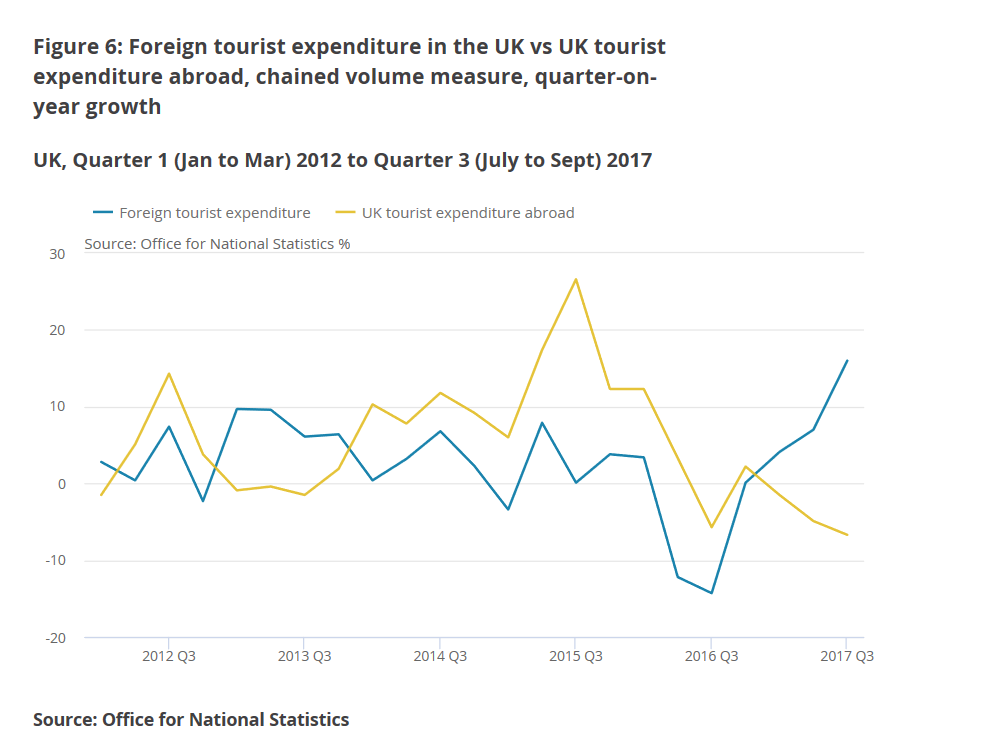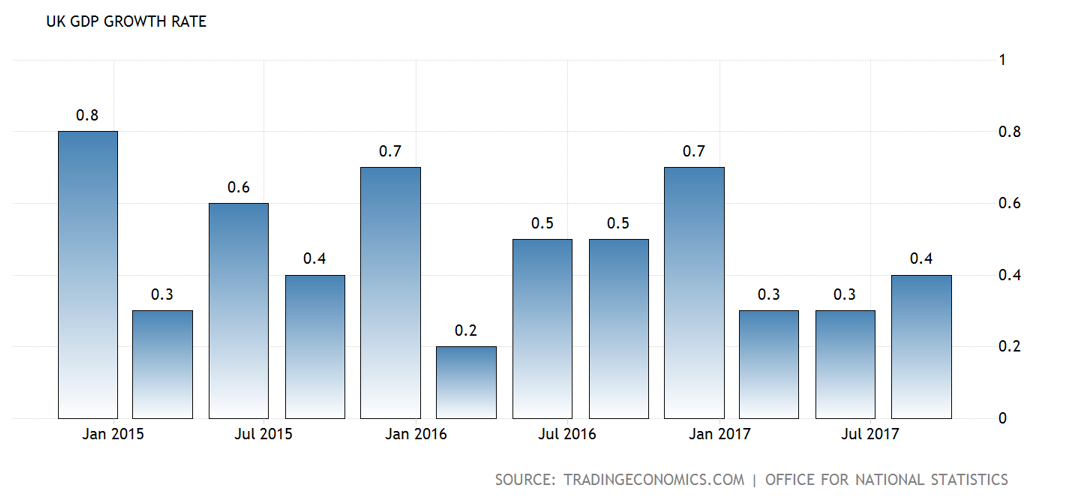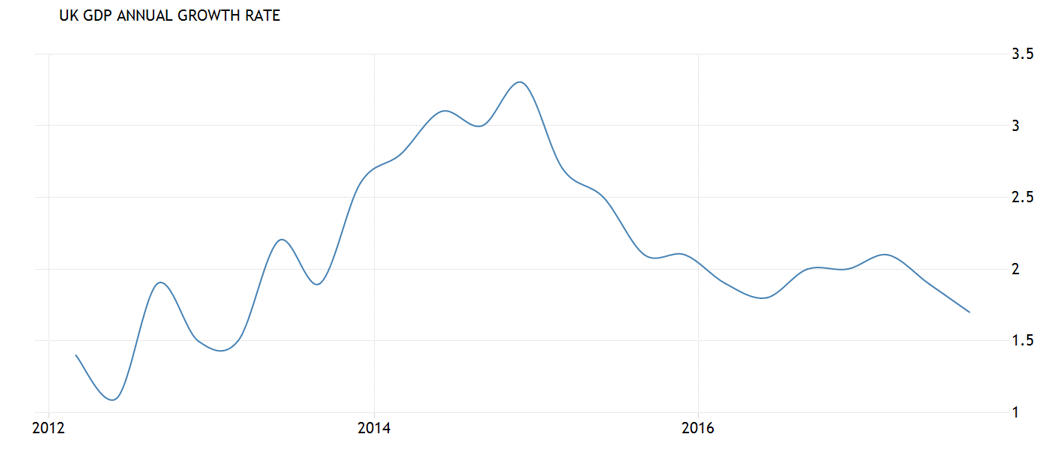A Weak Pound is Proving a Boon for the Tourism Industry Ahead of Next Year’s Royal Wedding

Spending by tourists visiting the UK has surged at its fastest rate in seven years, according to recent data from the Office of National Statistics(ONS).
The 'Tourist Pound' is as powerful as ever according to recent ONS data, with expenditure by visitors growing a whopping 16.0% in volume terms during the year to the end of the third quarter.
The steep rise has coincided - and contrasts with - a simultaneous drop of 6.7% in UK tourist expenditure abroad over the same period.
"These movements in net tourism have coincided with the recent sterling depreciation, which has seen the sterling exchange rate index fall by 17.5% since Quarter 3 2015," says the ONS report.

The data backs up predictions from VisitBritain, the organisation responsible for promoting the UK as a tourist destination, which forecasts tourist visits to the UK will rise above 40 million for the first time in 2018.
This would be a 4.4% increase from the an estimated 39.9 million visits in 2017. Spending by tourists is expected to come in at £25.1bn in 2017, with the entire industry estimated to be worth around £127bn to the UK economy, according to VisitBritain.
A major draw next year is expected to be the royal wedding in May, although this event on its own is not guaranteed to boost GDP.
According to a recent article in the Financial Times, the impact on GDP of Prince William and Kate Middleton's wedding in April 2011 was actually negative due to the extra bank holiday given to commemorate the wedding.
The event actually lessened the number of 'bums on seats at desks' which led to a fall in GDP.

Image Courtesy of Financial Times
Prince William’s nuptials were responsible for a fall of 1.2 per cent in output in services industries, a 1.6 per cent fall in the index of production and a 1.4 per cent fall in manufacturing production in April, compared with the previous month," the article reads.
In addition, more people left to go abroad rather than stayed in the UK over the period of the wedding, with a noticeable jump in the number of Brits going on holiday during and a slight fall in incoming tourists.

Image Courtesy of Financial Times
"The 1981 wedding of Prince Harry’s parents, Prince Charles and Lady Diana Spencer, boosted the British tourism industry, which, along with the rest of the economy, was in the depths of recession at the time."

Image Courtesy of Financial Times
Unlike Will and Kate's wedding there will be no extra bank holiday to commemorate Prince Harry and Meghan Markle's wedding, however, so there might not be any adverse impact on growth.
Also, despite the 1.2% drop in services output during Kate and Will's wedding, there was a 0.2% rise in retail sales during the same period - mainly food sales, which may be replicated in 2018 when Harry and Meghan tie the knot.
Tourism Supports GDP Boost but UK Growth is Still Mediocre
The tourist spending data came as part of the ONS’ third-quarter GDP report, which revealed a 0.4% increase in economic growth during the recent period, and a 1.7% annual rise.
This is up from the 0.3% rise seen in the first and second quarters, but below the levels of growth seen in earlier years and a mediocre performance according to some analysts.

Image Courtesy of Tradingeconomics.com
One of the main sources of concern was that growth was mainly dependent on an increase in consumption, but that same consumption is losing its power to positively influence GDP.
"Over 2017, one of the principal economic stories has been that consumer spending has weakened as higher inflation has pressurised household budgets. Today’s numbers on expenditure confirmed this picture," says Philip Shaw, an analyst at Investec.

Image Courtesy of Tradingeconomics.com
"The increase in household consumption was revised down a touch to show a quarterly rise of 0.5% on the quarter, 1.0% on the year (from +0.6%, +1.6% previously). This marks the slowest annual pace of growth in consumers’ expenditure since Q1 2012 when inflation was similarly above 3%."
Not so gloomy is Capital Economics’ senior UK economist, Paul Hollingsworth, who notes that easing Brexit risks and falling inflation will curtail risks to growth in 2018.
"Looking ahead, the consensus expects growth to slow to 1.4% next year. However, with the squeeze on households’ real earnings set to abate, and a chance that Brexit uncertainty actually recedes, rather than build further, as negotiations progress, we suspect that the economy will actually gain a little momentum next year, and forecast growth of 2.2% in 2018," Hollingsworth writes in a recent note.
Get up to 5% more foreign exchange by using a specialist provider by getting closer to the real market rate and avoid the gaping spreads charged by your bank for international payments. Learn more here.



